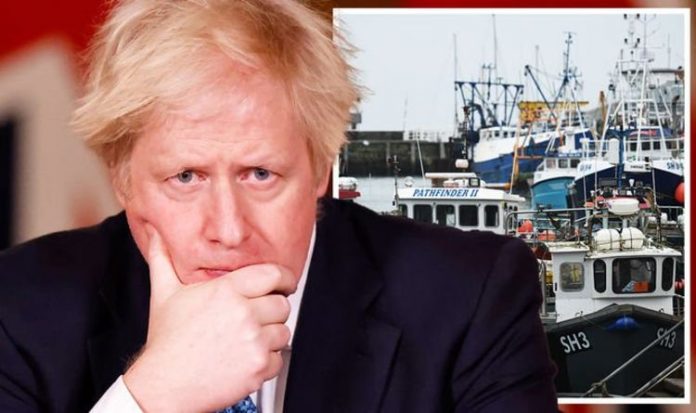The UK officially left the EU on December 31 after signing a lucrative Trade and Corporation Agreement worth more than £600billion with the bloc. The historic deal covers the transportation of goods and services from Great Britain to Europe – including fish – but post-Brexit red tape has caused major issues at ports on both sides of the Channel this week.
Just days into the new trading relationship, fishermen across large parts of the UK were unable to export fresh produce to the EU – with additional documentation and IT problems forcing many firms to throw away thousands of pounds of stock.
Barrie Deas, CEO of the National Federation of Fishermen’s Organisations, said fishermen have come “disillusioned” with the new trading terms.
Britain has become an independent trading nation after leaving the EU customs union and single market.
UK Brexit negotiators accepted a compromise on fishing and vowed to phase out the number of EU catches by 25 percent over the next five years.
In a major cause for concern, Mr Deas highlighted this was a quiet time of the year for the industry and warned if issues continued then there would be “increased chaos” during the peak season.
Speaking to Express.co.uk, he said: “I think that the fishing industry remains frustrated, disappointed and disillusioned that so little was achieved in the Trade and Cooperation Agreement, despite the UK’s new legal status as an independent coastal state.”
He added: “It is also proving very difficult to export fish and shellfish into the EU.
“In addition to increased documentation requirement, and unfamiliarity with the new systems, there have been IT problems and many delays.
“The fear is that these delays are happening at a time of year when export volumes are low.
“As they increase there is scope for increased chaos.”
Under the terms of the Brexit agreement, quotas for EU fishermen will be cut by 15 percent in the first year.
They will then be reduced by a further 2.5 percent in each of the following four years.
READ MORE: How to apply for Spanish residency – Brits thrown post Brexit lifeline
Appearing in parliament, Environment Secretary George Eustice also said talks had taken place with Dutch, French and Irish officials to try to “iron out some of these teething problems”.
A spokesman for Prime Minister said: “We have said that we are looking to compensate the fishing industry given that they faced temporary issues and we accept that this may have been through no fault of their own.
“We are working with the fishing industry on this, to alleviate and compensate them for some of the short-term issues they have faced.”







